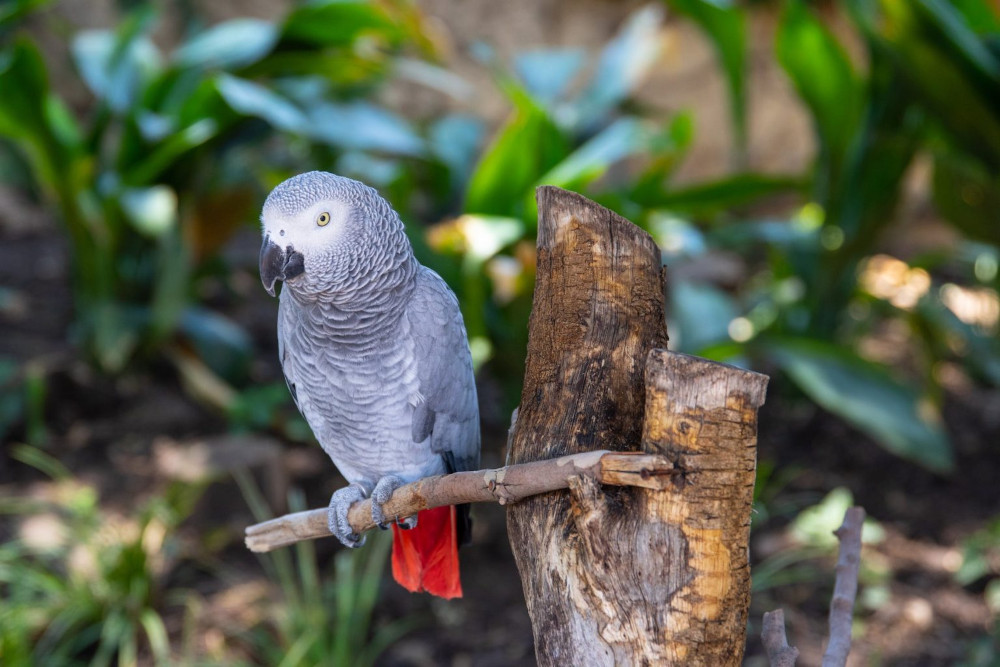Are birds the right companion animals for me?

This sounds like a very basic question to ask, but it’s one that needs to be addressed.
Are birds the right companion animals (pets) for me?
Birds are very clever. They can comprehend and learn things. There are plenty of studies that prove their intelligence. They need care, the right food, mental stimulation, and security. They are usually a flock animal and, as such, need a companion (either another bird or a person). They can be loud, or they can be very quiet. They can be destructive or happy to play with (rather than destroy) things in their environment.
Some things to think about before you decide to get a bird (or birds):
- Even captive-bred birds are still essentially wild animals, not domestic animals. This means that it can be difficult to provide them with good physical and mental wellbeing in your home. There is currently a lack of sufficient evidence to support optimal care and welfare for all bird species. It is important to carefully consider whether it is possible to provide the specialised husbandry and housing needed to mimic the species’ natural environment, meet their ecological requirements, and keep them healthy and provide opportunities for positive mental experiences. More information on the RSPCA’s policy on keeping of wild animals as pets can be found here. Our information specific to keeping native animals as pets can be found here.
- These animals are not ‘low maintenance’ or ‘easy to care for’. Although the individual bird may not be very expensive to buy initially (although some are expensive!), the initial setup for them and ongoing costs can be considerable.
- Birds need specialised veterinary care from a veterinarian experienced with birds, which may not be widely available. It’s a good idea to check how far away your nearest specialist is located and find out their fees for routine or emergency visits.
- Wild animals like birds, even when captive bred, may not cope well with handling and the noise, movement, and activity (e.g., from people, other animals, and household appliances) that come with a domestic home.
- Will a bird fit in with your lifestyle? Can you provide them with the companionship they need (from another bird or birds, or you)? If you are the bird’s only companion, can you devout enough time to them to meet their need for companionship?
- Are you able to provide a bird with a good life for the expected lifetime of the species? (Different bird species have a lifespan of 10-50 years) This means safeguarding their physical and mental health and providing them with the opportunity for positive experiences and good welfare.
- Living with a bird is a long-term commitment. Your bird’s ongoing care may require some discussion and planning with friends and family. For example, if you need to travel or visit hospital over your bird’s lifetime, who will be their primary carer?
So, are you still sure you want a bird? If so, the next step is to decide which bird is right for you. For more information on this, read on!
What bird is right for me?
Impulse buying at parrot sales, bird auctions, pet shops and even breeding aviaries can result in the acquisition of unsuitable or unwanted birds, followed by buyer remorse. What plans do you have for your birds? Do you want a companion that you can share lives with for many years? Or a bird that shares its life between you and another bird(s)? Perhaps you would like to breed birds for a hobby? Whatever your plans are, you need to do some research first. There are some species that may not be suitable as pets (for example, rosellas and Indian Ringnecks) and others that will not be ready to breed for years (for example, cockatoos and macaws). Do these characteristics fit in with your plans?
The key to knowing the answer is research. Read up on the birds you are interested in, ask other people about them talk to breeders, reputable rescue groups, avian veterinarians, and visit online forums. Be prepared to spend some money on research – good books and magazines are not free, but are well worth investing in. (Besides, the money you will save through research will pay for these books many times over!) Gain a broad perspective of the characteristics of the particular species you are interested in, and its suitability for your lifestyle and the reasons you’d like to have a bird. Take the opportunity to gain a feel for the market value of the birds as well, so you know the ballpark price you should be paying. Remember, it is rare to get bargains for quality birds!
Moral of the story: Don’t impulse buy!
Is the bird you are getting the bird you want?
The ability to identify an individual bird can be very important, and not just for rare or valuable birds. Particularly when a bird has strayed, or when ownership is disputed, the ability to distinguish between two apparently identical birds is both obvious and difficult. Closed, numbered leg rings and/or microchips are the only reliable means of identifying an individual bird. The leg ring number or microchip number should be on all accompanying paperwork (movement authorities, permits, sexing certificates, etc), as well as on the bird’s file at home. That way, your bird can always be accurately identified.
There are many occasions when knowing the sex of a bird is important. Obviously, the sex of breeding birds is important, but it is also important for companion (pet) birds. (Many health or behavioural problems stem from the bird’s sex; not knowing the sex will complicate things for you and your avian vet.) Species in which both sexes look the same (i.e., sexually monomorphic species such as many of the Australian, South American, and African species) will require either surgical or DNA sexing; the result should be documented in a valid sexing certificate accompanying the bird. Don’t accept a guess or, just as bad, (incorrect) folk wisdom involving feeling the space between the pubic bones or the direction a suspended needle or wedding ring takes when held over the bird.
So, if you are purchasing a valuable bird, the bird should be identified by either a closed leg ring or a microchip number, and the bird’s sex should be accurately known. You should insist this is done prior to purchase but expect the associated costs to be passed on to you, the buyer, by the seller.
Moral of the story: Make sure the bird you are getting is the bird you want.
Bibliography
RSPCA Australia believes that captive-bred wild animals should not be kept in a home environment or for companion purposes unless the species has been clearly identified as being suitable for this purpose. It is important that animals living in a home environment can live a good life. This means providing for their physical health and ensuring opportunities to fully express their individual interests and experience good welfare. Inadequate care and husbandry are reported to contribute to common and serious welfare compromises in many captive wild animals living in home environments. For more information see our policy.
The reality is, however, that captive-bred wild animals are kept in home environments despite sometimes not meeting these criteria (e.g., some reptile and bird species). Because of this, the RSPCA has produced these articles on the care and welfare of a variety of commonly kept captive-bred wild animals. The aim is to help people better understand their animals as individuals and provide them with care that keeps them healthy and provides opportunities for positive mental experiences as much as possible in captivity.
Wild animals must not be taken from the wild to be kept as companion animals (pets).
Was this article helpful?
This work is licensed under a Creative Commons Attribution-NonCommercial-NoDerivatives 4.0 International License.



